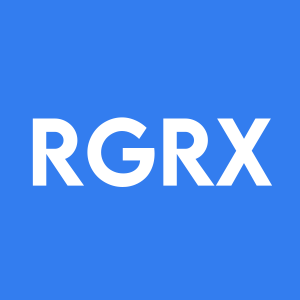Thymosin Beta 4 Research Leads Toward Potential Future Anti-aging Therapy
Rhea-AI Summary
On January 31, 2023, RegeneRx Biopharmaceuticals (OTCQB: RGRX) announced a significant scientific discovery regarding Thymosin beta 4 (Tβ4) and its potential for anti-aging therapies. Research from teams in Hungary and the U.S. demonstrated that Tβ4 can enhance cardiac cell survival and function post-injury, indicating its role in heart regeneration. The study revealed Tβ4's ability to activate epicardial progenitor cells and increase cardiac vessel formation in healthy models. This finding opens avenues for exploring Tβ4's effects on aging organs beyond the heart, potentially offering a strategy to combat aging. The full publication details are available in Int Immunopharmacol..
Positive
- Research shows Tβ4 enhances cardiac cell survival and improves function after heart injury.
- Potential for Tβ4 to regenerate aging hearts and prevent the aging process.
- Findings suggest Tβ4 may also benefit other aging organs beyond the heart.
Negative
- None.
News Market Reaction 1 Alert
On the day this news was published, RGRX declined NaN%, reflecting a moderate negative market reaction.
Data tracked by StockTitan Argus on the day of publication.
ROCKVILLE, Md., Jan. 31, 2023 /PRNewswire/ -- RegeneRx Biopharmaceuticals, Inc. (OTCQB: RGRX) ("RegeneRx" or "Company"), a clinical-stage drug development company focused on tissue protection, repair, and regeneration, is reporting today a new scientific publication describing Thymosin beta 4's (Tβ4) potential as an anti-aging therapy.
Using the heart as a model experimental system, a research team from Hungary and the United States summarized and expanded upon their previous results regarding Thymosin beta 4 (Tβ4) to support their anti-aging hypothesis. They investigated the developmental expression of Tβ4 in mouse embryos and determined the impact of the molecule in adult animals by systemically injecting the peptide following acute cardiac infarction (heart attack) compared to no myocardial injury.
Their research proved that Tβ4 is expressed in the developing heart and promotes cardiac cell migration and survival. In adult animals, the peptide enhanced myocyte survival and improved cardiac function after coronary artery ligation (surgically blocking the artery to induce injury). Intravenous injections of Tβ4 altered the structure of the adult epicardium (heart), and the changes resemble the characteristics of the embryo by increasing number of cardiac vessels and by the alteration of the gene expression profile typical of the embryonic state. Finally, the researchers discovered Tβ4 is capable of epicardial progenitor activation, and revealed the effect is independent of hypoxic injury.
"The finding that administration of Tβ4 in healthy animal models can increase the number of cardiac vessels, alter gene expression, and produce epicardial progenitor cells, which are necessary for cardiac tissue formation, in an undamaged heart, is an extremely important scientific discovery. It demonstrates that administration of Tβ4 could possibly be utilized to regenerate an aging heart and perhaps prevent or slow down the aging process itself. Since in animal models Tβ4 has shown it can regenerate damaged tissue in other organs, such as the brain, lung, liver and kidney, it will be important to see if it demonstrates the same effects in uninjured or aging organs outside of the heart," stated Dr. Allan Goldstein, RegeneRx Chief Scientific Advisor and Chairman Emeritus of the Department of Biochemistry and Molecular Medicine at The George Washington University School of Medicine.
The publication is entitled, Thymosin beta-4 denotes new directions towards developing prosperous anti-aging regenerative therapies; Int Immunopharmacol. 2023 Jan 27;116:109741. doi: 10.1016/j.intimp.2023.109741.
Forward-Looking Statements
Any statements in this press release that are not historical facts are forward-looking statements made under the provisions of the Private Securities Litigation Reform Act of 1995. Any forward-looking statements involve risks and uncertainties that could cause actual results to be materially different from historical results or from any future results expressed or implied by such forward-looking statements. Forward-looking statements in this press release include but are not limited to statements from us, our partners, or within research published by the Company or unaffiliated third parties. There can be no assurance that future research will confirm the results reported in this press release. There can also be no assurance that any of the Company's drug candidates will result in any approved products in the U.S. or any other country. Please view risks described in the Company's filings with the Securities and Exchange Commission ("SEC"), including those identified in the "Risk Factors" section of the annual report on Form 10-K for the year ended December 31, 2021, and subsequent quarterly reports filed on Form 10-Q, as well as other filings it makes with the SEC. Any forward-looking statements in this press release represent the Company's views only as of the date of this release and should not be relied upon as representing its views as of any subsequent date. The Company specifically disclaims any obligation to update this information, as a result of future events or otherwise, except as required by applicable law.
![]() View original content:https://www.prnewswire.com/news-releases/thymosin-beta-4-research-leads-toward-potential-future-anti-aging-therapy-301734403.html
View original content:https://www.prnewswire.com/news-releases/thymosin-beta-4-research-leads-toward-potential-future-anti-aging-therapy-301734403.html
SOURCE RegeneRx Biopharmaceuticals, Inc.








